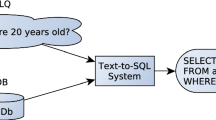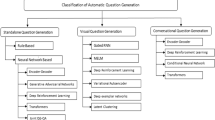Abstract
Evidence retrieval is a crucial step in question answering (QA) tasks, which can filter original context to provide supporting evidence for reading comprehension and reduce the time of answer inference. Most research interests in evidence retrieval have been paid to supervised methods, while unsupervised evidence retrieval received limited attention. However, most existing works for unsupervised evidence retrieval regard sentence-level and passage-level evidence retrieval as two independent processes. In order to fuse these two levels of information, we propose an efficient and unsupervised multi-grained evidence retrieval method for QA, which considers multiple interactions, including query–sentence, query–passage, and passage–passage. Specifically, we use sentence-level retrieval to obtain an evidence framework. Then we propose a score fusion mechanism to model the unilateral guiding relationship between sentence-level and passage-level retrieval. On the basis of score fusion, we propose a gated selection mechanism to retrieve evidence passages, which can supplement reasoning information for the evidence framework. Extensive experiments on open-domain and multi-hop QA datasets show that our method has fast retrieval speed while achieving better retrieval and QA performance than baselines.



Similar content being viewed by others
Notes
In the preliminary experiment phase, we found that the recall of sentence partitioning using NLTK is about 1 point lower than that of the regular partitioning method (based on the rule of “.”).
References
Dhingra B, Mazaitis K, Cohen WW (2017) Quasar: datasets for question answering by search and reading. arXiv preprint arXiv:1707.03904
Joshi M, Choi E, Weld DS, Zettlemoyer L (2017) Triviaqa: a large scale distantly supervised challenge dataset for reading comprehension. In: Proceedings of the 55th annual meeting of the association for computational linguistics: long papers, vol 1, pp 1601–1611
Yang Z, Qi P, Zhang S, Bengio Y, Cohen W, Salakhutdinov R, Manning CD: Hotpotqa (2018) A dataset for diverse, explainable multi-hop question answering. In: Proceedings of the 2018 conference on empirical methods in natural language processing, pp 2369–2380
Welbl J, Stenetorp P, Riedel S (2018) Constructing datasets for multi-hop reading comprehension across documents. Trans Assoc Comput Linguist 6:287–302
Chen D, Fisch A, Weston J, Bordes A (2017) Reading wikipedia to answer open-domain questions. In: Proceedings of the 55th annual meeting of the association for computational linguistics: Long Papers, vol 1, pp 1870–1879
Qiu L, Xiao Y, Qu Y, Zhou H, Li L, Zhang W, Yu Y (2019) Dynamically fused graph network for multi-hop reasoning. In: Proceedings of the 57th annual meeting of the association for computational linguistics, pp 6140–6150
Li S, Li X, Shang L, Jiang X, Liu Q, Sun C, Ji Z, Liu B (2021) Hopretriever: retrieve hops over Wikipedia to answer complex questions. Proceedings of the AAAI conference on artificial intelligence 35:13279–13287
Cheng H, Shen Y, Liu X, He P, Chen W, Gao J: Unitedqa: a hybrid approach for open domain question answering. In: Proceedings of the 59th annual meeting of the association for computational linguistics and the 11th international joint conference on natural language processing: long papers, vol 1, pp 3080–3090 (2021)
Sachan D, Patwary M, Shoeybi M, Kant N, Ping W, Hamilton WL, Catanzaro B (2021) End-to-end training of neural retrievers for open-domain question answering. In: Proceedings of the 59th annual meeting of the association for computational linguistics and the 11th international joint conference on natural language processing, long papers, vol 1, pp 6648–6662
Banerjee P, Baral C (2020) Self-supervised knowledge triplet learning for zero-shot question answering. In: Proceedings of the 2020 conference on empirical methods in natural language processing (EMNLP), pp 151–162
Min S, Seo M, Hajishirzi H (2017) Question answering through transfer learning from large fine-grained supervision data. In: Proceedings of the 55th annual meeting of the association for computational linguistics: short papers, vol 2, pp 510–517
Hsu T-Y, Liu C-L, Lee H-Y (2019) Zero-shot reading comprehension by cross-lingual transfer learning with multi-lingual language representation model. In: Proceedings of the 2019 conference on empirical methods in natural language processing and the 9th international joint conference on natural language processing (EMNLP-IJCNLP), pp 5933–5940
Khashabi D, Min S, Khot T, Sabharwal A, Tafjord O, Clark P, Hajishirzi H (2020) Unifiedqa: crossing format boundaries with a single qa system. Findings of the association for computational linguistics: EMNLP 2020, pp 1896–1907
Chen J, Lin S-t., Durrett G (2019) Multi-hop question answering via reasoning chains. arXiv preprint arXiv:1910.02610
Yadav V, Bethard S, Surdeanu M (2019) Quick and (not so) Dirty: unsupervised selection of justification sentences for multi-hop question answering. In: Proceedings of the 2019 conference on empirical methods in natural language processing and the 9th international joint conference on natural language processing (EMNLP-IJCNLP), pp 2578–2589
Ma J, Korotkov I, Yang Y, Hall K, McDonald R (2021) Zero-shot neural passage retrieval via domain-targeted synthetic question generation. In: Proceedings of the 16th conference of the European chapter of the association for computational linguistics: main, volume, pp 1075–1088
Min S, Chen D, Zettlemoyer L, Hajishirzi H (2019) Knowledge guided text retrieval and reading for open domain question answering. arXiv preprint arXiv:1911.03868
Yadav V, Bethard S, Surdeanu M (2020) Unsupervised alignment-based iterative evidence retrieval for multi-hop question answering. In: Proceedings of the 58th annual meeting of the association for computational linguistics, pp 4514–4525
Yadav V, Bethard S, Surdeanu M (2019) Alignment over heterogeneous embeddings for question answering. In: Proceedings of the 2019 conference of the North American chapter of the association for computational linguistics: human language technologies. Long and short papers, vol 1, pp 2681–2691
Pennington J, Socher R, Manning CD (2014) Glove: global vectors for word representation. In: Proceedings of the 2014 conference on empirical methods in natural language processing (EMNLP), pp 1532–1543
Robertson S, Zaragoza H (2009) The probabilistic relevance framework: Bm25 and beyond. Found Trends Inf Retr 3(4):333–389
Salton G (1991) Developments in automatic text retrieval. Science 253:974–980
Yang W, Xie Y, Lin A, Li X, Tan L, Xiong K, Li M, Lin J (2019) End-to-end open-domain question answering with bertserini. In: Proceedings of the 2019 conference of the North American chapter of the association for computational linguistics (Demonstrations), pp 72–77
Tu M, Huang K, Wang G, Huang J, He X, Zhou B (2020) Select, answer and explain: interpretable multi-hop reading comprehension over multiple documents. Proceedings of the AAAI conference on artificial intelligence 34:9073–9080
Qi P, Lin X, Mehr L, Wang Z, Manning CD (2019) Answering complex open-domain questions through iterative query generation. In: Proceedings of the 2019 conference on empirical methods in natural language processing and the 9th international joint conference on natural language processing (EMNLP-IJCNLP), pp 2590–2602
Yadav V, Bethard S, Surdeanu M (2021) If you want to go far go together: unsupervised joint candidate evidence retrieval for multi-hop question answering. In: Proceedings of the 2021 conference of the North American chapter of the association for computational linguistics: human language technologies, pp 4571–4581
Berger A, Caruana R, Cohn D, Freitag D, Mittal V: Bridging the lexical chasm: statistical approaches to answer-finding. In: Proceedings of the 23rd annual international ACM SIGIR conference on research and development in information retrieval, pp 192–199 (2000)
Reimers N, Gurevych I (2021) The curse of dense low-dimensional information retrieval for large index sizes. In: Proceedings of the 59th annual meeting of the association for computational linguistics and the 11th international joint conference on natural language processing. Short Papers, vol 2, pp 605–611
Luan Y, Eisenstein J, Toutanova K, Collins M (2021) Sparse, dense, and attentional representations for text retrieval. Trans Assoc Comput Linguist 9:329–345
Gao L, Dai Z, Chen T, Fan Z, Van Durme B, Callan J (2021) Complement lexical retrieval model with semantic residual embeddings. In: Advances in information retrieval: 43rd European conference on IR research, ECIR 2021, virtual event, March 28–April 1, 2021, proceedings, Part I, pp 146–160
Devlin J, Chang M-W., Lee K, Toutanova K (2019) Bert: pre-training of deep bidirectional transformers for language understanding. In: Proceedings of the 2019 conference of the North American Chapter of the association for computational linguistics: human language technologies. Long and short papers, vol 1, pp 4171–4186
Rajpurkar P, Jia R, Liang P: Know what you don’t know: Unanswerable questions for squad. In: Proceedings of the 56th annual meeting of the association for computational linguistics. Short papers, vol 2, pp 784–789 (2018)
Joshi M, Chen D, Liu Y, Weld DS, Zettlemoyer L, Levy O (2020) Spanbert: improving pre-training by representing and predicting spans. Trans Assoc Comput Linguist 8:64–77
Izacard G, Grave E (2020) Distilling knowledge from reader to retriever for question answering. arXiv preprint arXiv:2012.04584
Rajpurkar P, Zhang J, Lopyrev K, Liang P (2016) Squad: 100,000+ questions for machine comprehension of text. In: Proceedings of the 2016 conference on empirical methods in natural language processing, pp 2383–2392
Author information
Authors and Affiliations
Corresponding author
Ethics declarations
Conflict of interest
The authors declare that they have no conflict of interest.
Availability of data
The datasets generated and analyzed during the current study are available from the corresponding author on reasonable request.
Additional information
Publisher's Note
Springer Nature remains neutral with regard to jurisdictional claims in published maps and institutional affiliations.
Rights and permissions
Springer Nature or its licensor (e.g. a society or other partner) holds exclusive rights to this article under a publishing agreement with the author(s) or other rightsholder(s); author self-archiving of the accepted manuscript version of this article is solely governed by the terms of such publishing agreement and applicable law.
About this article
Cite this article
You, H. Multi-grained unsupervised evidence retrieval for question answering. Neural Comput & Applic 35, 21247–21257 (2023). https://doi.org/10.1007/s00521-023-08892-4
Received:
Accepted:
Published:
Issue Date:
DOI: https://doi.org/10.1007/s00521-023-08892-4




